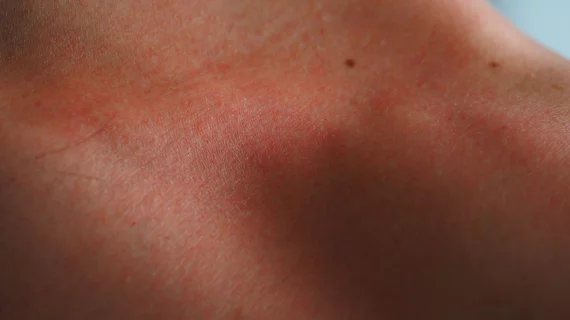Skin cancer can’t hide from deep-learning diagnostics
Deep learning can help diagnose skin cancer with high accuracy even when it has only low-tech dermoscopic images to work with, according to research conducted in Israel and published in The Lancet’s online journal eBioMedicine.
To test their algorithm, Avi Dascalu, MD, PhD, of the Sackler School of Medicine in Tel Aviv and Eli David, PhD, of Bar-Ilan University acquired diagnostic images from 73 patients with suspected melanoma or another skin cancer.
The researchers captured the lesion images using a skin magnifier with polarized light (SMP) as a rudimentary dermoscope, which is a handheld instrument commonly used in dermatology that combines a light source with standard magnifying optics.
They processed these images with an experimental deep-learning algorithm for initial disease diagnosis, then did so again after adding a layer of data from sonification of the images. This second step converts image data into sound waves and, as shown in prior research, can improve diagnostic accuracy.
All patients who fulfilled inclusion criteria for the study were sent for biopsy.
Working with the histopathology results as the definitive final diagnosis, Dascalu and David found their experimental SMP-deep learning system achieved a positive predictive value of 57.3%.
Comparing this with diagnosis of the same lesions using an advanced dermoscope, they found the latter only marginally better, producing a positive predictive value of 59.9%.
“Remarkably, diagnostic accuracy of the elementary dermoscope is comparable to a professional dermoscopy device,” the authors commented in their discussion, adding that their results “evidentiate the difference of perception of visual images between humans and convolutional neural networks.”
Dascalu and David further remarked that deep-learning technology improves accuracy of skin cancer diagnosis and might help physicians catch the disease more quickly, bypassing the time it can take to obtain high-quality dermoscopic images.
They also noted that, as their study used teledermatology services, it helped advance the case for preventive medicine, “potentially supporting present budget-oriented healthcare systems.”
The study is available online in full for free.

